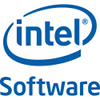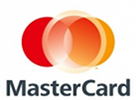MasterCard's Garry Lyons on app innovation, mobile commerce and the value of data
4.67/5 (2 votes)
Garry Lyons, MasterCard's Chief Innovation Officer, shares insight on innovative apps powered by Mastercard, what devs can learn from them, and how "data" is king.
Intel® App Innovation Contest 2013 Get-to-Market Interview Series

MasterCard's Garry Lyons on app innovation, mobile commerce and the value of data
Interview by Marc Saltzman on behalf of Intel®
A Q&A on developing finance and retail-related apps for mobile devices


The Intel® App Innovation Contest 2013 is challenging developers to create innovative Windows* 8 apps for new tablets and All-in-One devices.
By providing more than $100,000 in cash prizes, the goal is to inspire developers to continue the evolution of computing with creative solutions to consumer and enterprise challenges.
We spoke to Garry Lyons, MasterCard's Chief Innovation Officer, who shared some information on the kinds of innovative apps powered by MasterCard, what developers can learn from them and how “data” is king.
Marc Saltzman: MasterCard seems to be transforming from a financial services provider to a technology company. What’s the catalyst behind this transformation?
Garry Lyons: We’ve always been a technology company. We facilitate and secure electronic payments between buyers and sellers in 150 currencies in 210 countries. Right now there are 2 billion MasterCard payments cards that can be used at 36 million merchant locations around the world. In terms of the technological transition, it has been more pronounced of late as technology has been evolving at a phenomenal rate and it’s enabling us to provided more advanced solutions to consumers, merchant, governments and financial institutions to create efficiencies or solve problems that traditionally would have been very difficult to do.
MS: Whether it’s for mobile devices like smartphones and tablets, or laptops and all-in-one PCs, how important are mobile apps to MasterCard?
GL: Mobile is probably the most prominent touch-point for consumers. At MasterCard, we believe in time, every device will be a commerce device. We see our role as facilitating commerce on these devices and continuing to make payments safe, simple and smart. Mobile in particular is enabling us to deliver more value to the customer. To give you an example of that, no consumer wakes up in the morning saying “I’m really looking forward to paying” – instead, they’re looking forward to doing something, such as having breakfast in the local coffee shop, getting a taxi into the office or tickets to a favorite team’s game. Instead of focusing on the payment, they’re focusing on the activity, and so we see mobile technology and innovation can help make that easier. We are focused on making lives easier and technology can play a big part in this.
MS: Speaking of easier and safer, there are a large number of people who are reluctant to shop on their phone, to conduct a financial transaction. Can MasterCard help alleviate these concerns through mobile apps and technologies?
GL: Absolutely, for starters, there are many, many ways to use your phone as a payment device. When we say making payments “safe, simple and smart,” it’s paramount that whether it’s a mobile PayPass transaction or a cloud-based transaction, as we transition from plastic to mobile and beyond, we retain the security aspect of it. By way of example, today, tapping your mobile phone to make a contactless PayPass transaction is analogous to tapping your card and has the same security characteristics as a card-based contactless transaction. We’re not stopping there - check out this announcement to see how we’re making e-commerce and mobile shopping simpler and safer than ever before.
MS: When thinking about the retail category, both from the in-store consumer experience and from the corporate management standpoint for finance, what type of evolutionary and revolutionary opportunities do you think the tablet and 2 in 1 devices make possible?
GL: If you think about it from a merchant’s perspective, they create opportunity in terms of mobility. You don’t need to queue at a check-out -- you can do things like order ahead or in-aisle checkout. If the consumer has a device, you can know they’re in the store and personalize both the shopping experience and the checkout experience. Today, with a piece of plastic, when a consumer walks into the store, no one knows they’re there. So there’s no way it can enhance the consumer’s experience or deliver more value to the merchant. With mobile technology on a phone or tablet, consumers can choose to make a merchant aware they’re in store and can see new offers, recommendations, items their friends bought and so on. The retailer can know what a customer likes, how regular of a customer they are, what they’ve purchased previously, their loyalty program, and so much more. So technology allows you to create better experiences for the customer – again, before, during and after the transaction. It goes beyond just the payment. If you think about the consumer experience, we recently launched MasterPass, which is an omni-channel checkout platform. It allows you to use your same credentials whether you’re checking out in-store, on your mobile phone or tablet, or making a purchase in-app.
MS: Very interesting - and convenient.
GL: Yes. The technology creates a new experience. And another example of that is something we recently unveiled at World Retail Congress. It’s called ShopThis! with MasterPass, which allows you to get physical goods from digital content. How many times have you been reading an online magazine or digital newspaper or watching a movie on a tablet and thought “I’d really like to buy that”? It could be from an advertisement or from the editorial. We’ve created a technology that allows the consumers to purchase the item there and then without leaving the digital content. It’s a capability we’ve created that can be embedded inside an app, a digital magazine or even on a website. For the consumer it gives them instant gratification, the ability to buy that product. This is just one of the many, many examples of how technology changes the game.
MS: This will require a MasterCard, no doubt. Do alternative payment services pose a threat or opportunity? The taxi I was in last week used Square on an iPhone. Does this complement MasterCard or help them?
GL: Actually our MasterPass solution supports all card brands, not just MasterCard. But back to your question, absolutely, these types of solutions are complementary. The reality is if the taxi driver didn’t have the capability of accepting cards, you wouldn’t be able to use your credit or debit card to pay for the taxi. The world is moving towards a digital future, where there are different experiences and checkout opportunities for the consumer and you’ll use the appropriate methodology at the appropriate time. Sometimes you may use your card, sometimes you’ll tap your phone or use the MasterPass solution. For example, if you went into a coffee shop today and you decided to use PayPass, you’d tap your card and leave – it’s a fantastic experience. But fast-forward to Friday night and you want a beer and a hotdog at a baseball or football game and you don’t want to get out of your seat and miss the action. Using technology we developed called QkRTM (pronounced “Quicker”) built on the MasterPass APIs, you can order food from your phone and have it delivered directly to your seat -- using your secured credentials stored in the cloud. We recognize that over time plastic will become less prevalent than mobile devices, but this is going to take some time, and consumers will ultimately make that decision.
MS: Globally speaking, what are some important consumer trends that you think developers should be aware of as they consider developing finance and retail mobile apps?
GL: Personalization and relevance are still very important to consumers and big data plays a large part in delivering this -- the ability to combine data sources allows you to provide greater relevance to consumers and merchants. I think consumers are getting more and more comfortable with technology and have huge expectations as to what technology can do for them. So you need to think about how to use data, with technology, to provide the optimum experience for consumers. I do think it’s using technology and data to create relevance. It could mean I get the appropriate offer at the appropriate time. It could mean getting the appropriate recommendation at the right time. For example, if someone knew I was flying into New York City tonight and they knew I was a big fan of Chinese food and they knew where I was staying – this data should be used to create the appropriate restaurant recommendations for me near my hotel. If it’s done poorly, such as an offer in the wrong city or for a food type that I don’t like or the consumer experience is bad, the consumer is likely to delete the app or not use the service again. Emerging markets are becoming even more important and smart phones are going to become ubiquitous everywhere. Q1 2013 was the first quarter where more smartphones were shipped than feature phones for the first time ever. So the apps you write will have an even bigger target market but depending on the app you are writing, you may need to consider the nuances of markets that would not historically have been a target for your app.
MS: Speaking of relevance, what are some of the more exciting apps MasterCard has available for digital devices? Are they all commerce related?
GL: Many of them are. We have launched a lot of commerce apps and there are ones we’re piloting but haven’t launched and I can’t speak to those yet. I talked about QkR in stadiums. And we’re live in Australia with QkR, where this mobile application is used by parents to pay for kids’ lunches at school. Now, while that might not sound like the most interesting thing in the world, today in these schools, parents give their kids cash, but there’s a chance the cash can be lost or taken from them or a chance the children might eat unhealthy food with that money. From an efficiency perspective, the school doesn’t know what foods need preparing until the kids show up with the cash that morning. Now, with the QkR application, parents can order food ahead of time for their children, for the whole week. That means they don’t need to use cash, there’s no chance of a child losing money and helps the school from an efficiency standpoint. So, every day, the school can see from our system what they need to make, say, 200 tuna sandwiches, 50 waters, 150 diet sodas and 100 bags of chips. They pack up brown bags and the kids are all set. QkR also lets parents pay for school books or other activities, not just lunch. It really makes it easy for parents to take care of their kids’ school needs
MS: How important is the trend of developing cross-platform apps using HTML5?
GL: I think the jury is still out on that. We do both at the moment. We use HTML5 because it’s quick to develop for and runs on many platforms – PCs, tablets and a suite of phones -- but the [native] app today gives you a very tailored experience. For now, we’re going down both tracks.
MS: Can an app developer that creates a finance-based app gain trust by users – even with an unknown brand – or is it important to partner with a high-profile and trusted partner, like MasterCard?
GL: I’m going to say it’s an awful lot easier to gain credibility by partnering with a globally trusted brand. Developers looking to build an app should always look for developer friendly services that make writing your apps easier. There are many services out there that will lessen the effort it takes to write the app and shorten the time it takes to get into the wild. By way of example, we’ve recently launched a developer-focused platform called Simplified Commerce (http://www.simplify.com) that can enable anyone to start accepting and processing payments in a matter of minutes. You get sample code and we take you through all the steps a developer needs to go through to start accepting payments on a website or from their mobile application. We support most of the popular languages like Java, PHP, C#, Python and Ruby, and have SDK support for iOS and Android. If a partner like MasterCard can provide you with all the tools you need, why would you try and build your own approach to accepting payments – and of course we deal with all of the PCI and security requirements.
MS: For an app developer starting out, what is the single best piece of advice you can offer?
GL: Dream big and don’t be afraid to try something that’s going to fail. Set out with the ambition that your app is going to be used by every single consumer on the planet. If you only get halfway there you’re going to be more successful than anyone else. Also, it’s good if your idea is solving a known problem, creating efficiency or making someone’s life easier.
MS: Is it possible for an app developer to build upon an existing concept or should they focus on creating something radically different? Facebook built upon other social networks like MySpace and made it so much more. Is that ok?
GL: Absolutely. There’s always going to be evolution and revolution. Innovation is about making something better, so if you spot an opportunity to improve upon something that already exists, go for it!
==
For additional development resources visit Intel® Developer Zone
http://software.intel.com/en-us/windows
